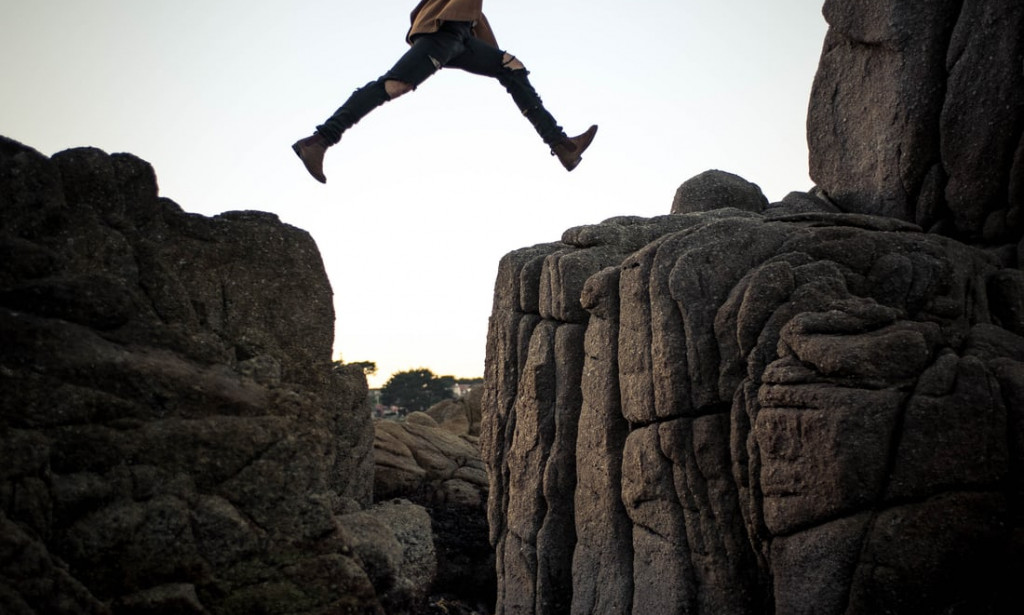How Can You Get Over Your Phobia Of Breathtaking Views?
The idea of getting up and speaking in front of a group of people can get into difficulty even the person with more confidence in itself.
Even successful, political, athletes and musicians suffer from tremors in hands, sweaty palms and palpitations when they face the public.
The truth is that the anxiety or scenic fear is something very real and very common, being able to become a clinical condition of a certain severity, classified as a specific phobic disorder. Being prepared is the first strategy to overcome scenic fear.
Not having previously done the task is the main cause of anxiety in these situations. In his book "Liberate himself from fears", Joseph O'Connor recommends five minutes of preparation for every minute of presentation or public exposure.
Testing the speech aloud or talking to someone who can give you instructions are good customs before public intervention can also be the case that you are very prepared for your public appearance and yet you still feel overexcited and with fears.
This is not uncommon. In fact many people drown, lose their voice or stop executing tasks that once dominated. It does not matter if you have done perfect speeches in the past, the lack of air is caused by the inability to handle stress. Stressful situations can even condemn the most famous interpreter.
What are the causes of scenic fear?
There are many potential causes of scenic fear, and these will be different from one person to another. Some people are more susceptible to performance-related anxiety, but it is important to remember that no one is immune, not even the most experienced speakers.
Even if he has never been a scenic afraid, it is most likely that someday you feel a flutter on his stomach or listen to an unknown tremor in your voice. Could a situation so trigger your anxiety for performance? Probably yes. Recognizing the causes of scenic fear will help you overcome it.
These are some of the common causes:
Lack of preparation.
Let's be honest. If you are not sure to know the lyrics of your song or the text of your speech, you probably will be nervous, and that naturally makes you more susceptible to a panic attack on the stage. Luckily, this is a factor that is under your control:practical practice practice.
Lack of experience.
While anyone can be scared scenic, the less experience you have, the more likely you will have to have anxiety for performance. The simple novelty already predisposes to have some anticipatory anxiety.
You also have less memories of successful actions to resort, and also less evidence that, in truth, there is nothing than fear of failure. You can not avoid this reality:
Facing a hearing is risky.
To a large extent because there is always the possibility of making mistakes, and people will be there to witness your mistake. Of course, those same people are there to witness your success much more likely,
so concentrate on that possibility. Previous anxiety Some people are simply born anxious. That predisposition is already integrated into the chemistry of his brain.
If this is your case, maybe you should consider it a luck, because it is likely that you have already had to learn to manage your anxiety in other situations.
You can apply those same techniques here. High expectations The more important a performance, concert or discourse, the more likely it will be that anxiety appears. But it is important to keep things in perspective.
Your body may feel that this is a moment of life or death, but it is almost certain that this is not true. There may be a lot at stake, but not so much, so try to relativize the consequences of an unlikely failure. How to overcome scenic fear
Before this scenic fear becomes a psychological disorder, in which case it is necessary to have professional help,
there are some ways to counteract these feelings of anxiety:
Recognize your fears.
Often, when you admit that you are nervous, anxiety decreases. One way to do it is making use of mental images. Can you imagine people mocking up or insulting you? Now, disconnects that negative image and formulates a positive, one that shows the success of your speech.
Exagate the symptoms.
If you suffer from tremors of your hands and sweaty palms, try to make them tremble and sweat more. You will realize that you can stop shaking and sweating. If you can increase the symptoms, you can control them.
It comes with enough time.
Sometimes, getting early can help. The early arrival allows you to previously contact your audience and help you see your kind faces closely, thus gaining confidence.
Keep eye contact.
When you are talking, you focus your attention on a single person, keeping eye contact for a moment, and passes to the next person naturally.
Connecting with the public in this way will help you calm anxiety. And in any case remember that breathing slowly, with the diaphragm, it is always a good idea to recover the calm, and that in general the public to which you will be always from you.
To be scared scenic does not mean that you are not intended to act in front of an audience or that you are not good at what you do.
With practice, you can learn to control your symptoms and, after a time you will notice that your anxiety for performance is less intense or appears less frequently.
Meanwhile, feel proud to be facing your fears. That courage will shine when you are doing what you love, and your audience will know how to reward you for it.


You must be logged in to post a comment.